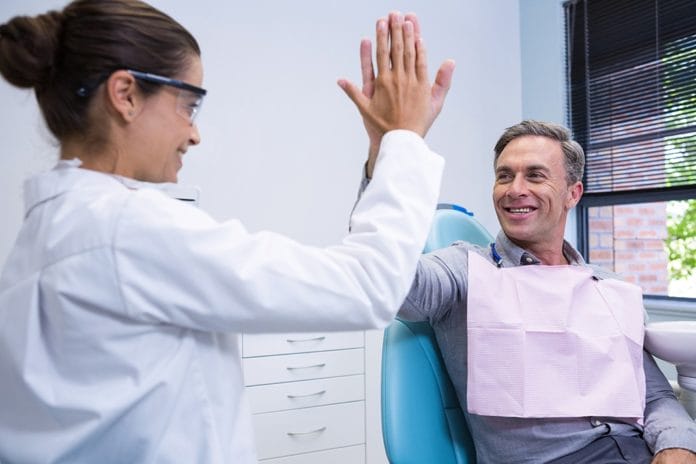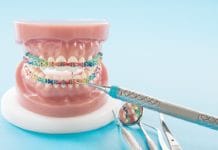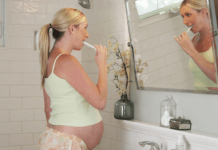Building rapport is a term often used in a dental office. It can refer to relationships between other offices, coworkers, or most importantly our patients. To put it simply, rapport is a way of saying two people understand each other and the lines of communication are open. When it comes to building patient rapport there will never be a cookie cutter answer. With each new patient comes a different personality to learn and understand. As a hygienist, being able to adapt to a wide variety of personal interactions should be added to the never-ending list of job duties. Sometimes you have a patient that makes the provider/client relationship easy; conversation flows naturally, they laugh at your corny jokes, and maybe they even answer your inquiries about their home care habits honestly. However, it is not always that simple. We have all experienced it; your patient will only answer in head nods, and you aren’t even asking yes or no questions. Well, we didn’t learn how to handle that one in school.
We typically see our patient’s more than any other medical professional, and in turn, get to spend more time getting to know them on a more personal level. This makes the rapport goal for each patient simple: get to know each patient, gain their trust as their provider, and open up the lines of communication. This allows both parties to feel more confident and comfortable during the appointment. It shows our patients that we are interested in their overall health and not just “cleaning teeth.”
To help build rapport, start each appointment sitting down at eye level with the patient to discuss changes in health history, concerns with their teeth, and any questions they may have concerning their oral health. From there you can discuss diet, medication side effects, and caries risk, to pinpoint what they can do to improve their overall oral health.
Make notes in the patient’s chart to remind yourself what to bring up at their next recall. Having notes on things which have been previously discussed helps make each appointment less repetitive for the patient. It also allow you to individualize the education you give and hit the points which will benefit each patient. One of the most rewarding comments to hear is “Wow, no one has ever explained that to me, I really get it now!” Okay, not every patient is that excited to hear what we have to say regarding home care. However, either way, you want to leave the appointment knowing you are giving each patient you encounter the information they need to thrive when it comes to their own oral health.
This may seem like an obvious solution, but it cannot be stressed enough. So many dental professionals get caught up in a routine and forget that your patient is a person. This is not just another set of teeth! How often do you hear, “I don’t eat candy, so I don’t know how I get cavities,” or, “My mom has bad teeth so I’ll probably be in dentures soon.” Instead of dismissing these comments, start asking questions. Learn each person’s habits, explain to them which habits are contributing to the disease process, and most importantly what small changes they can make to break the cycle.
Our patients do not want a lecture. Instead of scolding a patient for drinking soda, ask them how often they’re drinking soda. Offer a sustainable solution that fits into their lifestyle. No one wants to hear, “You need to stop drinking soda.” Change your approach and try something like, “Consuming sugary drinks like soda can increase the amount of decay you experience. Try limiting those drinks to meal time only and stick to water in between meals. I think you will be pleased with the outcome of this small change.” This helps your patient understand you aren’t attacking them for their habits, but instead, you want to find a solution that works for them. Your patient will leave the appointment with information that they feel confident they can execute, and you will feel accomplished with another successful appointment.
I encourage you to focus on each patient as an individual, speak to them as you would want to be spoken to, and remember, they are more than just another set of teeth.
SEE ALSO: How Dental Hygienists Can Help Patients with Dental Phobias
DON’T MISS: How to Build Good Rapport with Patients and Set Yourself Apart
















